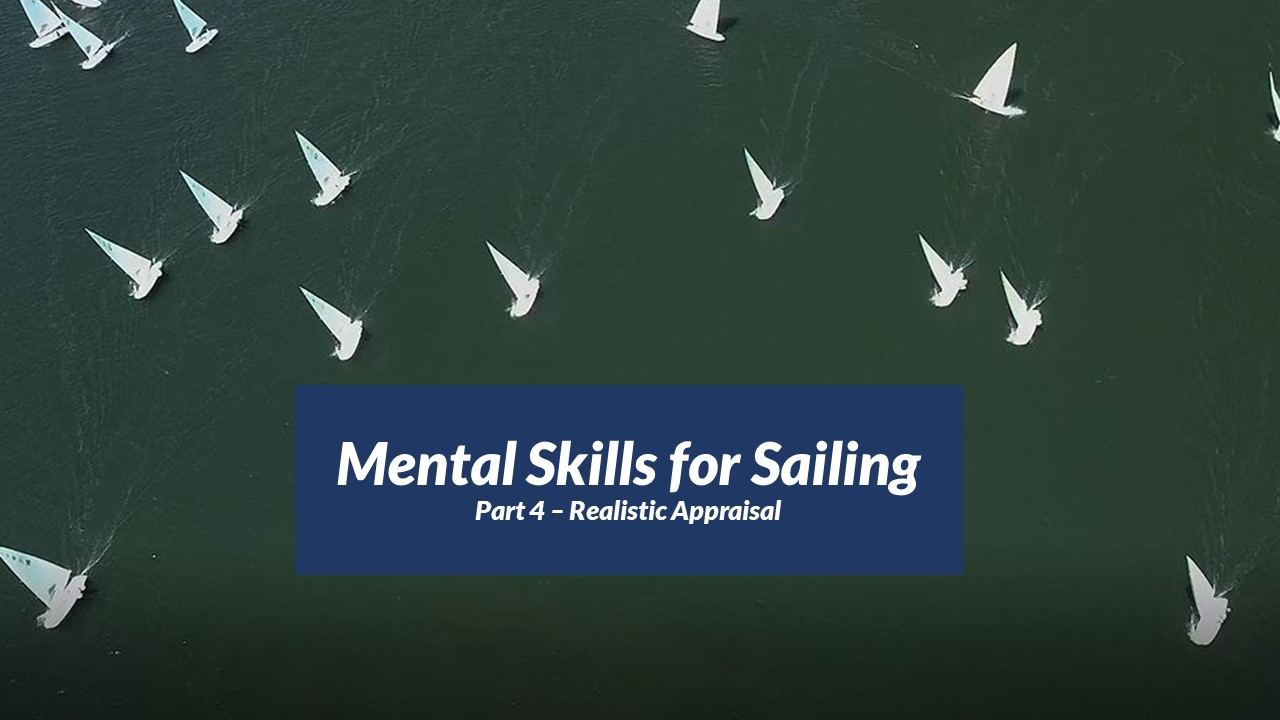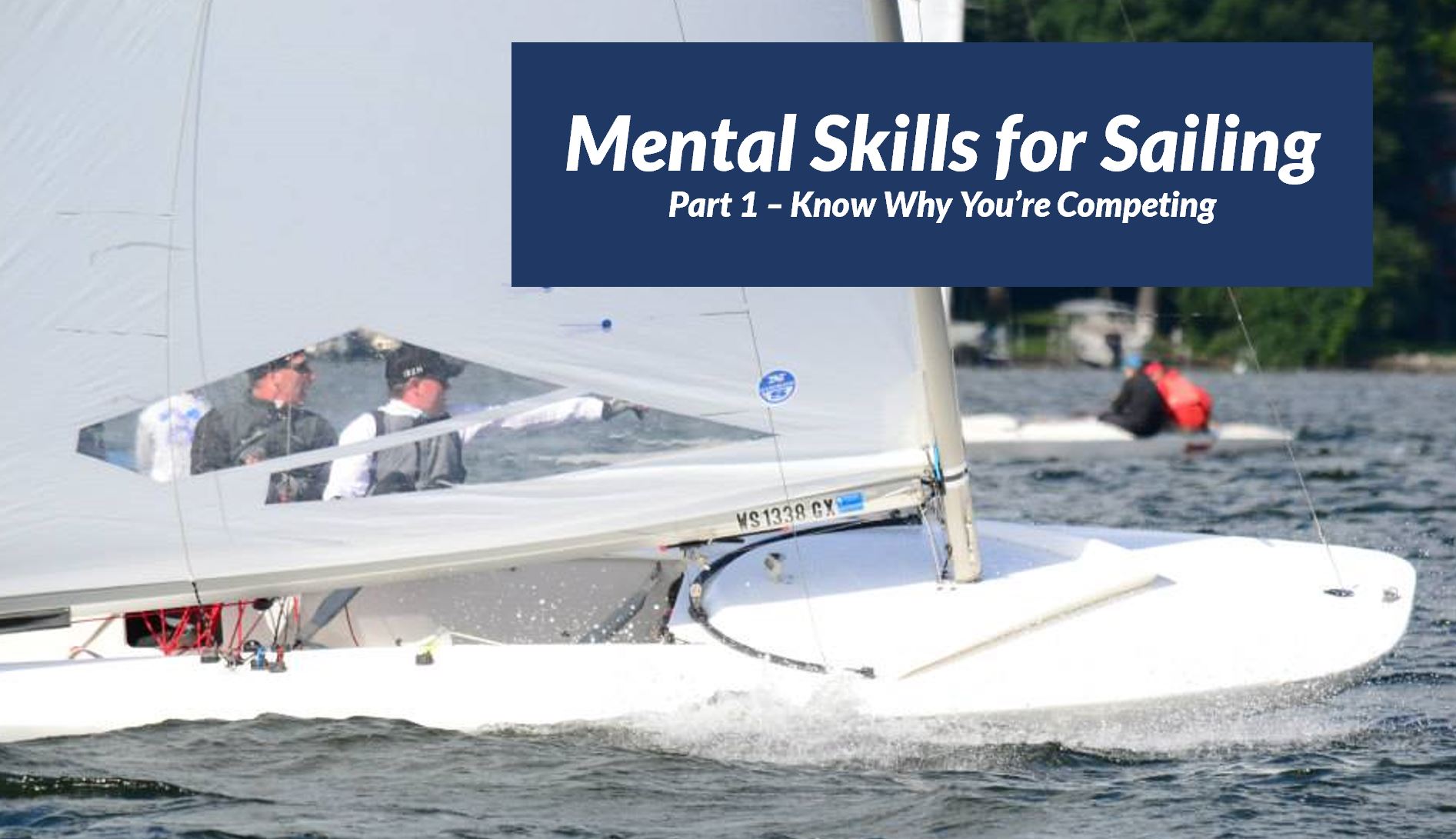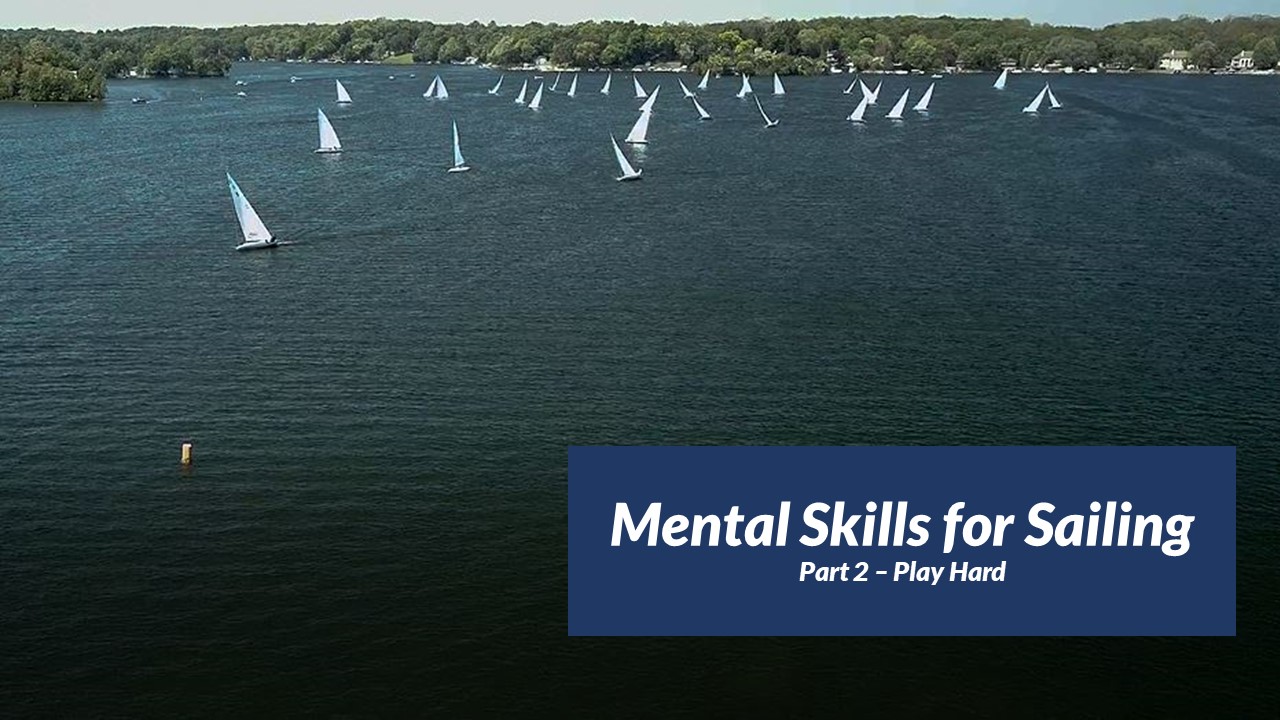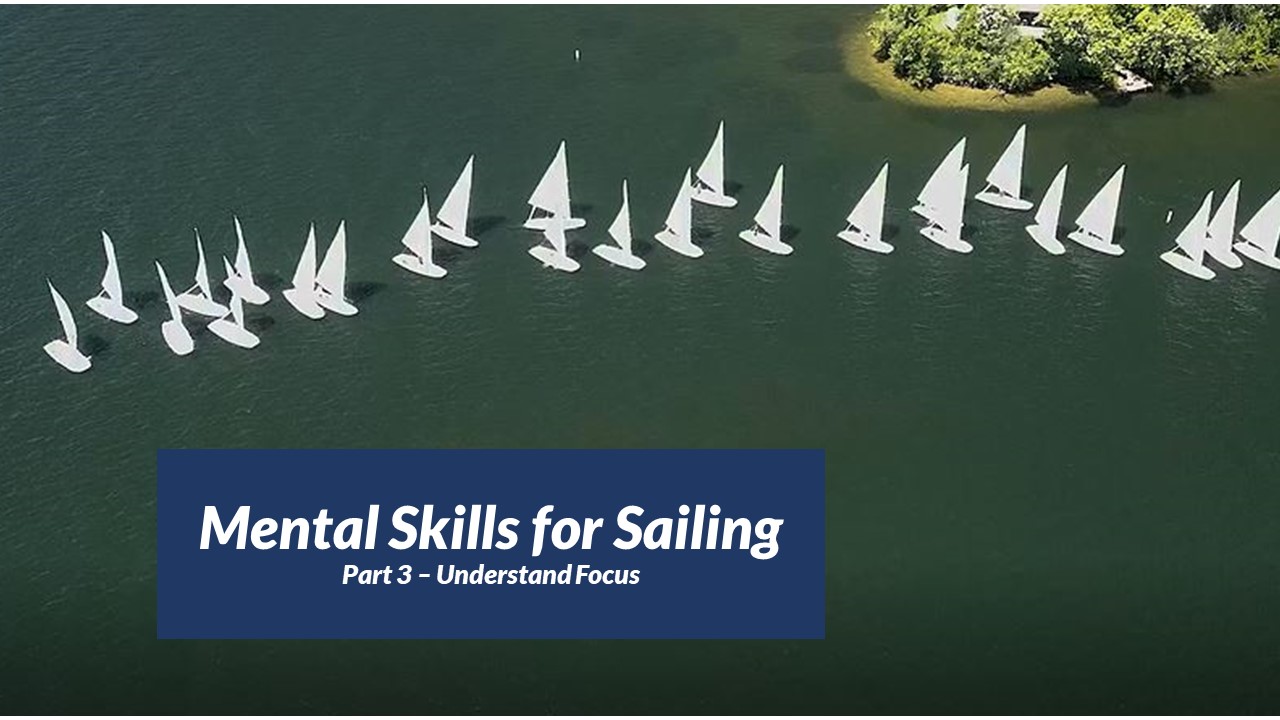Man blames fate for other accidents, but feels personally responsible when he makes a hole in one.
Horizons Magazine, quoted in Winning: The Psychology of Competition, by Stuart Walker
In Parts 1-3 of our series on mental skills for sailing, we’ve covered motivation and the need to focus. To conclude the series, we’ll highlight the importance of realistic appraisal as tool for for making decisions and improving over time.
In Winning: The Psychology of Competition, Stuart Walker devotes an entire chapter to realistic appraisal. He makes the point that lack of information, our assumptions, and our egos often get in the way. We’ll expand on Walker’s points with examples from our own experience.
When to Be Wary
We try to appraise the world and ourselves realistically, but sometimes our view gets distorted. This happens often in a complex sport such as sailing. Since you can’t question everything, it helps to know when to work extra hard to be sure your appraisal is realistic.
Consider the following situations:
- You experience unexpected results in a race – either poorer or better than expectations. Was it luck? Were the conditions right or wrong for your limited set of skills? Did the skill or failings of other competitors have something to do with the results?
- You continually make similar mistakes despite being aware of their potential for recurrence. Is it lack of practice? Lack of understanding? Is an unchallenged bias interfering with your performance?
- On the race course, a competitor makes a move you didn’t expect. Does he/she see something you don’t? Is it a tactical vs. a strategic move? Should you follow?
- You’re behind in a race and need to catch up. As you appraise the situation and contemplate your next moves, are you guided by wishful thinking? Are you worried about the results, previous mistakes, or potential mistakes? These same questions might apply if you’re ahead in the race.
In situations like these, you need to ensure your appraisal is realistic. In the next sections we’ll discuss an approach drawn loosely from our reading and experience.
Five Elements of a Realistic Appraisal
#1. Observe in detail
The more you observe, the more likely your appraisal will reflect reality. As I evaluate my own racing, I am continually surprised at the power of detailed observation. For more on this, see our post Understand Focus.
#2. Rely on sound principles
To understand what you are seeing, you need a set of reliable principles. If your competitor is faster upwind, it might be due to sail trim, technique, or rig tune. To properly assess this, you may need to delve into the factors affecting boat speed. Half truths, or assumptions about using different sails won’t likely be enough. Do some reading and ask the experts.
#3. Pay attention to anomalies and challenge assumptions
When you see something that doesn’t make sense, it’s a clue that your view of reality is flawed. Dig in and find the reason. I once passed another sailor going downwind in the same light-medium breeze. The other sailor was hiking to windward and took time to observe that I was hiking to leeward and had more heel. This reduced wetted surface and turned out to be more important than hiking to windward to combat weather helm, at least for those specific conditions.
#4. Understand emotions
Are you talking yourself out of seeing reality? Here are some examples of emotional self-talk. These statements could be conscious or unconscious. Some of them may be true, but if unexamined, they could distort your appraisal.
- I won because I’m a better sailor. Or, I lost because I’m a worse sailor.
- I should cover that boat, but I won’t because I don’t like confrontation.
- Most of the fleet is going left. I can’t hang with them, so I’ll have to prove I’m smarter by going right.
- I should take another look at the wind behind me, but I’m too tired and discouraged.
- That other sailor messed me up. He always gets in my way.
- I let Joe cross me on port because he’s leading the regatta and I didn’t mind losing a few boat lengths.
- I just got lucky (or unlucky).
#5. Validate
Most importantly, find ways to validate your appraisals.
- Get data from your crew and use the crew as a sounding board for your conclusions.
- Actively consider alternate explanations for what you’re seeing. Test these alternate explanations.
- Re-appraise the situation after a few minutes, bringing in new information.
- Talk with other competitors after the race.
- Ask a spectator, mentor, or coach to observe specific things about your race and check with them afterwards.
- Use photos, video, and GPS tracking when possible. Many sailors are surprised when they see an objective record of their performance.
- Keep a notebook and write down your observations and appraisals. This helps you get better over time.
Make Better Decisions: Speed and Smarts
Mental Skills for Sailing – Part 1: Know Why You’re Competing
Playing Hard: Mental Skills for Sailing, Part 2
Understand Focus: Mental Kills for Sailing, Part 3





